Migrant crisis in Kos: Pictures show refugees UK Government ministers have described as a 'swarm' threatening Europe's 'standard of living'
Dozens of migrants arrived on Kos after crossing from Turkey just before dawn
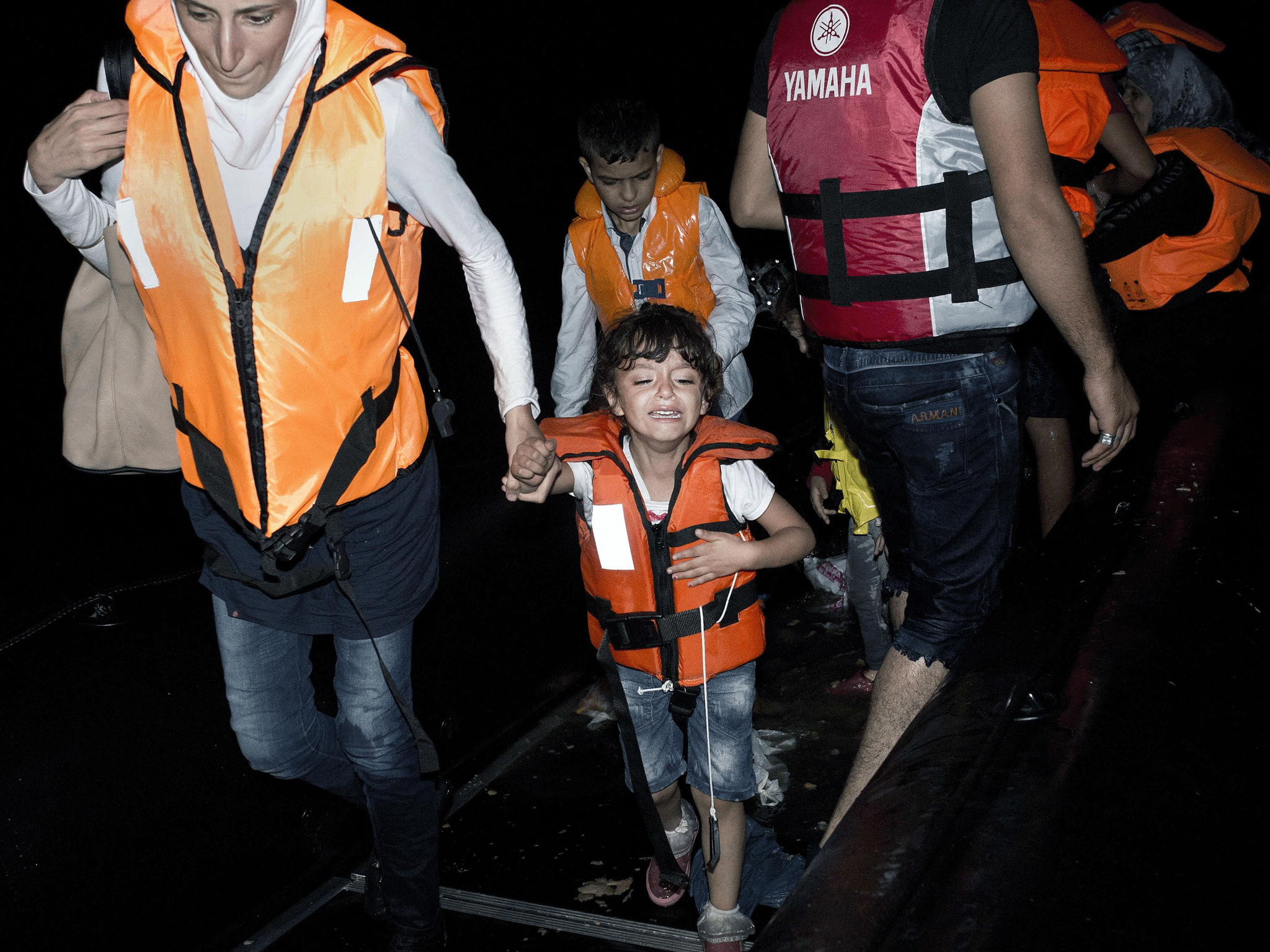
Your support helps us to tell the story
From reproductive rights to climate change to Big Tech, The Independent is on the ground when the story is developing. Whether it's investigating the financials of Elon Musk's pro-Trump PAC or producing our latest documentary, 'The A Word', which shines a light on the American women fighting for reproductive rights, we know how important it is to parse out the facts from the messaging.
At such a critical moment in US history, we need reporters on the ground. Your donation allows us to keep sending journalists to speak to both sides of the story.
The Independent is trusted by Americans across the entire political spectrum. And unlike many other quality news outlets, we choose not to lock Americans out of our reporting and analysis with paywalls. We believe quality journalism should be available to everyone, paid for by those who can afford it.
Your support makes all the difference.These poignant images show the moment migrants who had risked their lives crossing the Aegean Sea in an inflatable boat arrived on the shores of the Greek island of Kos.
Dozens of people, including children, crossed from Turkey to arrive on the island just before dawn on Wednesday.
Thousands of migrants, mostly fleeing Syria, are already camped in poor conditions on the island after making the journey.
While authorities on the island have been criticised for their treatment of the migrants, political leaders in the UK have also faced a backlash for their description of people arriving in Europe from the Middle East and Africa.
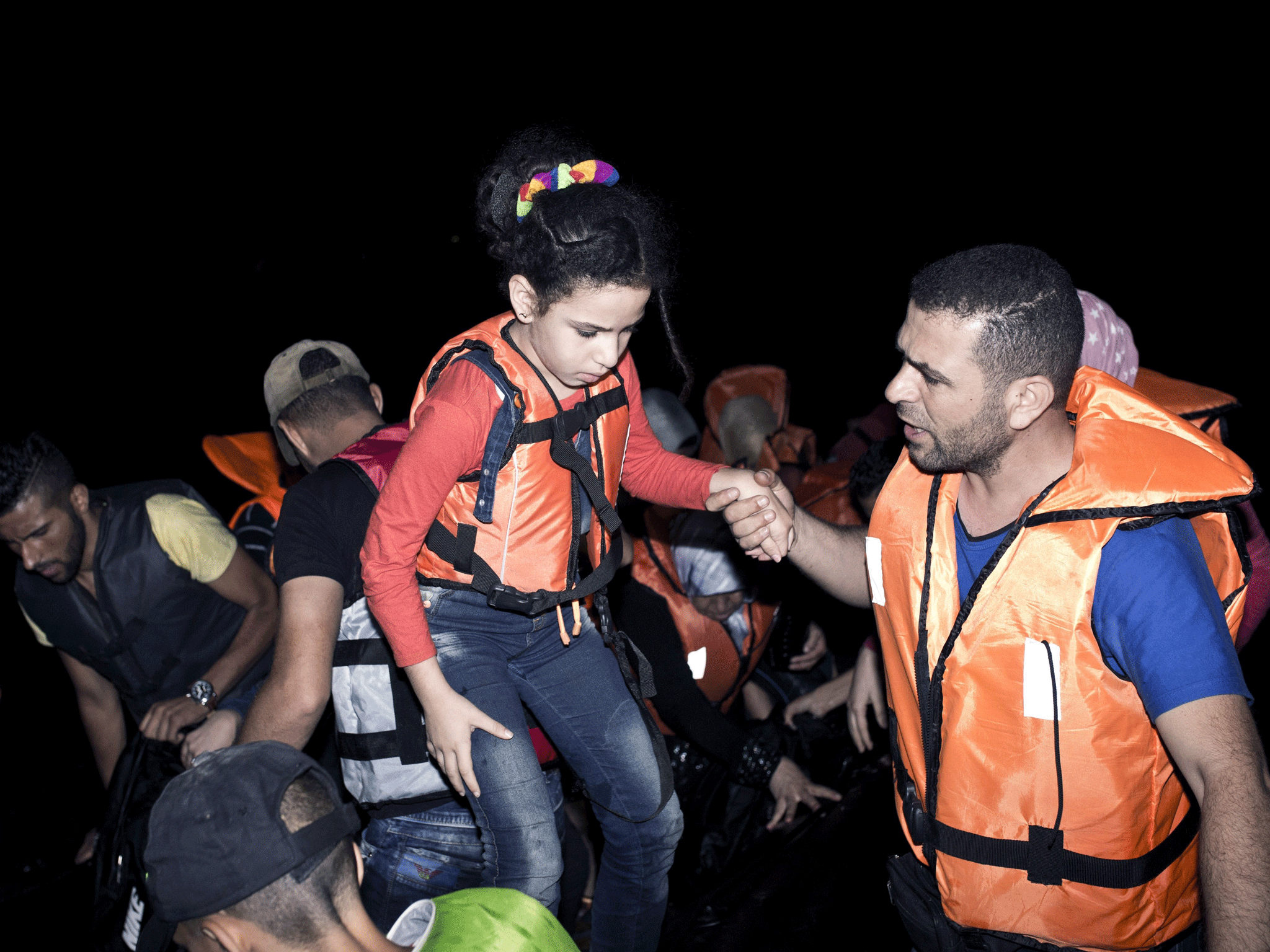
Prime Minister David Cameron was criticised by a human rights group as using "irresponsible, dehumanising" and "extremely inflammatory" language when he described migrants as a "swarm" last month.
Foreign Secretary Philip Hammond meanwhile was also condemned by a charity after he accused African migrants seeking a better life in Europe of undermining the continent's "standard of living".
Speaking to the BBC, Mr Hammond also said more should be done to "enhance the physical security of the tunnel" at Calais, warning "there are large numbers of pretty desperate migrants marauding around the area."
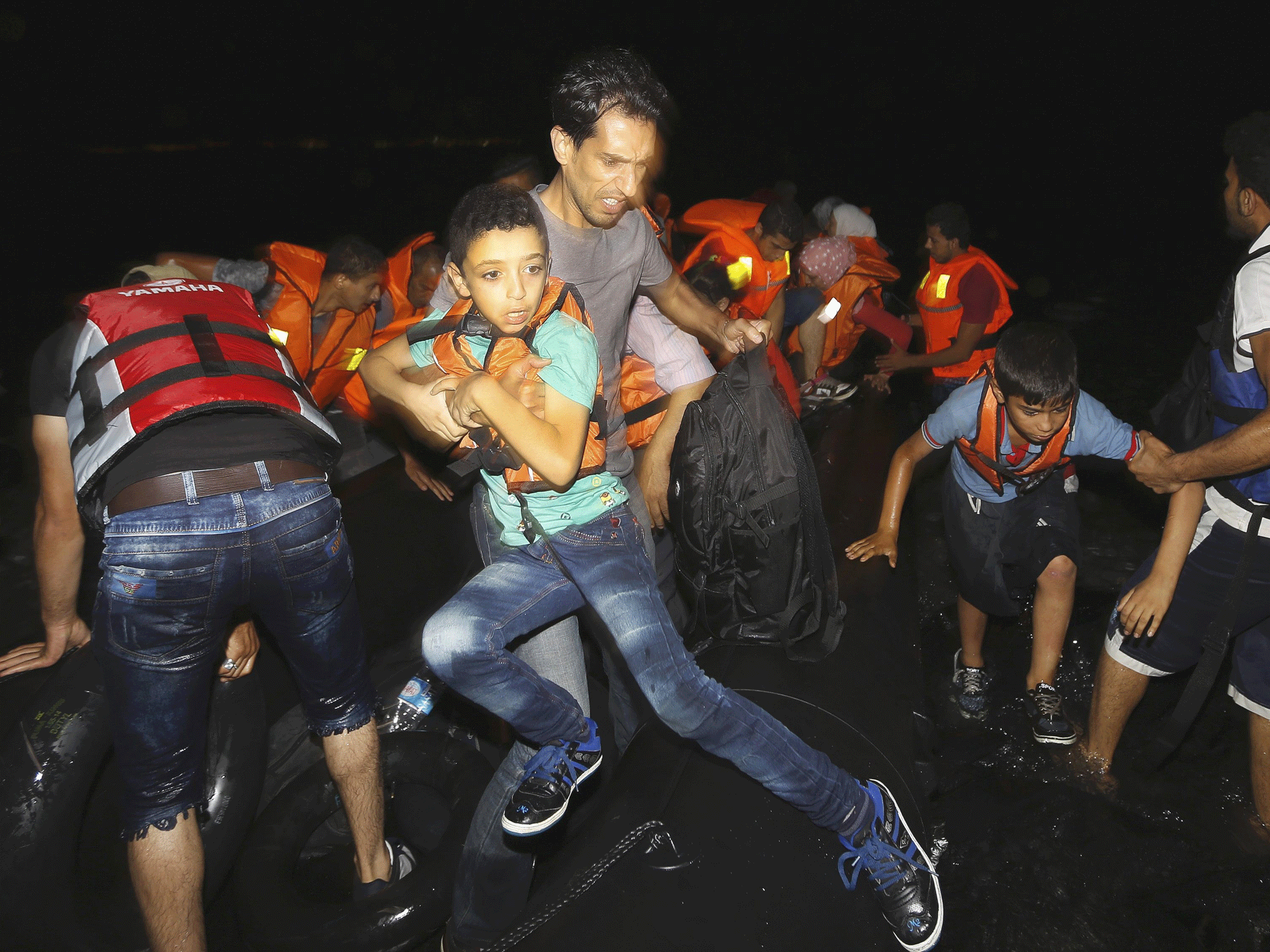
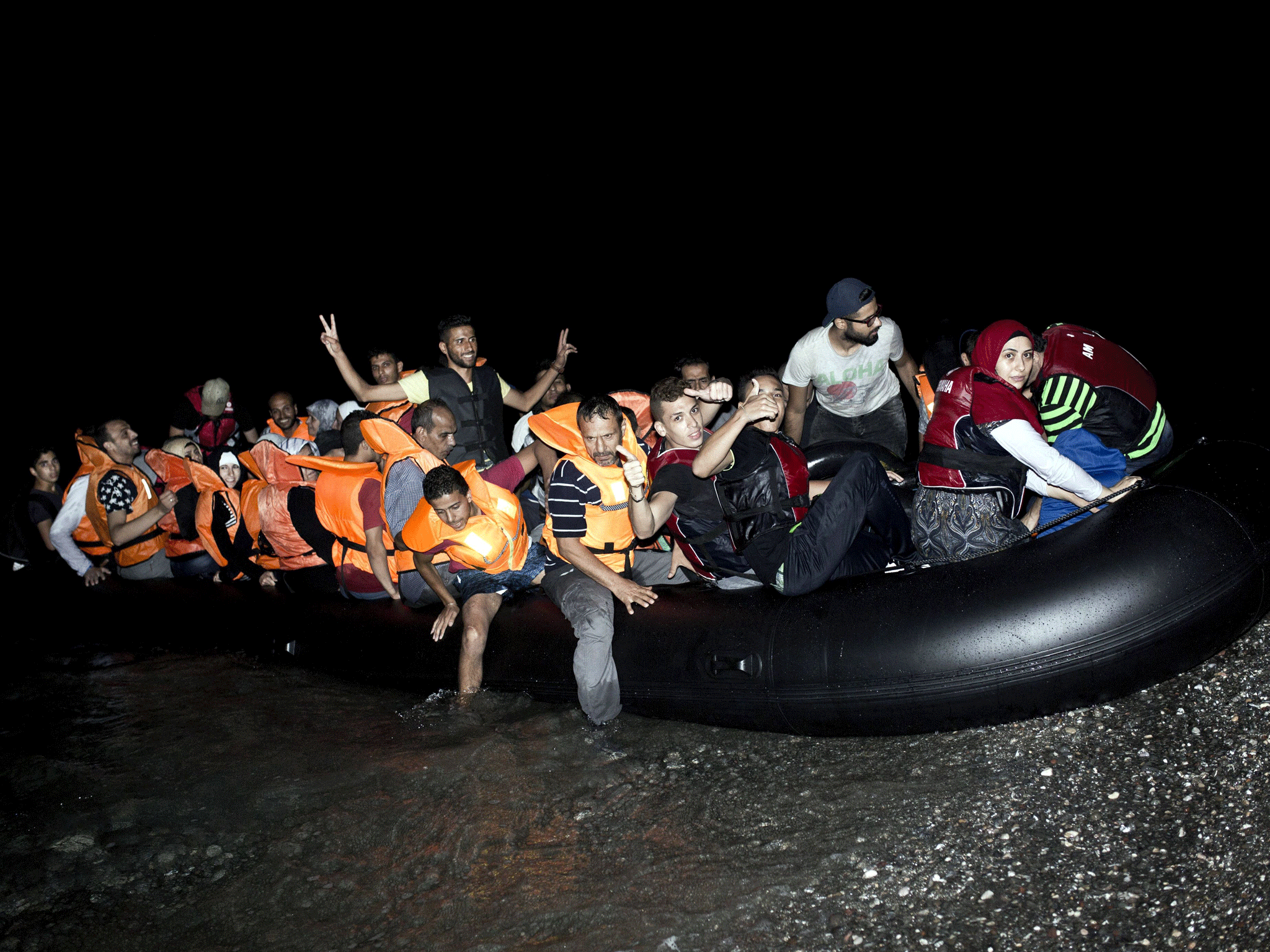
The UN's special rapporteur on human rights has criticised those who take a "nationalist, populist" approach to the "courageous" migrants at Calais, describing it as tantamount to "racism".
Images taken as migrants arrived on the island of Kos on Wednesday show children as they make their way from the boat while elsewhere, men and women appear to celebrate in relief after arriving safely.
At least two inflatable boats arrived in the Psalidi coastal area, according to the Associated Press.
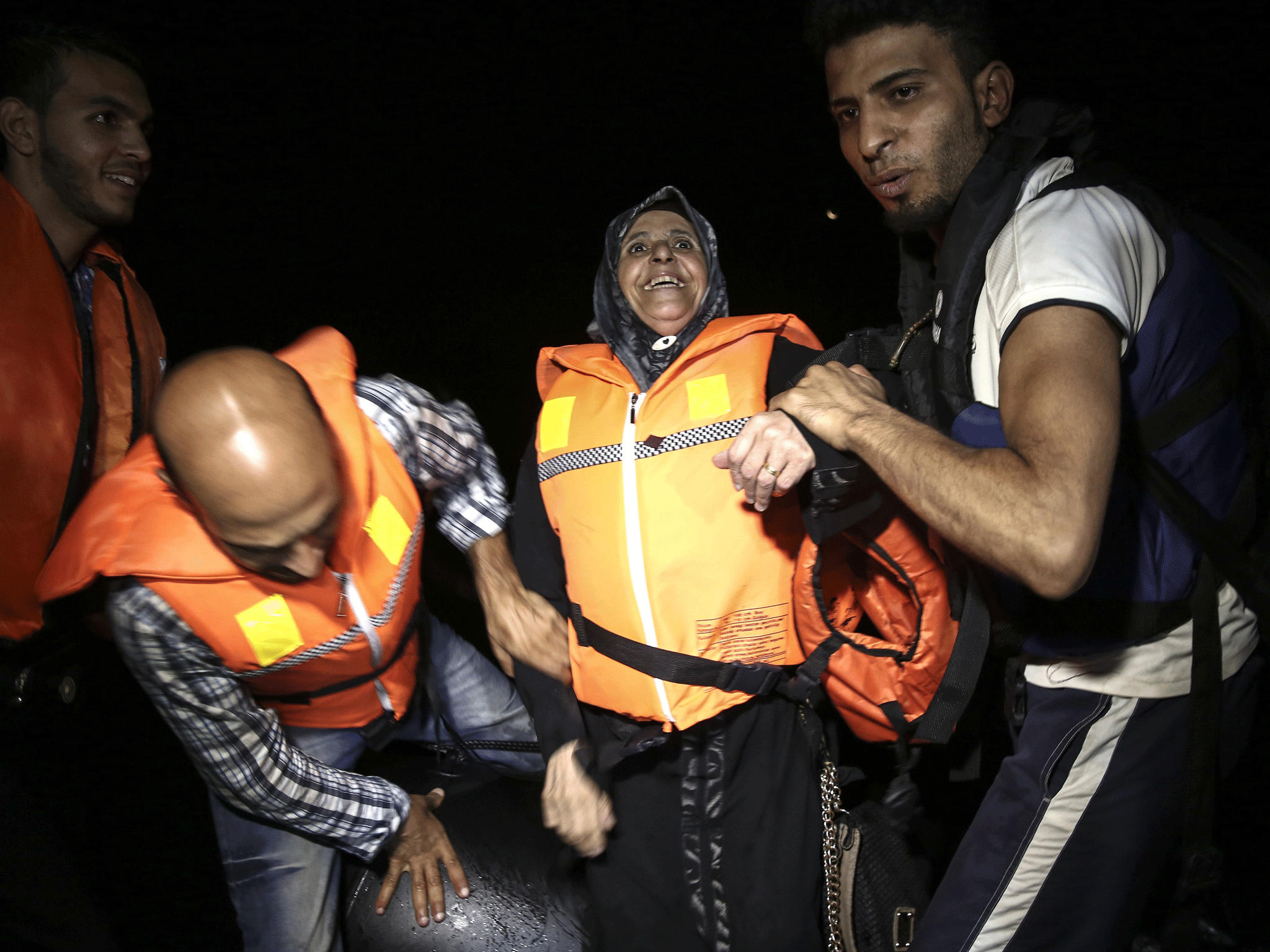
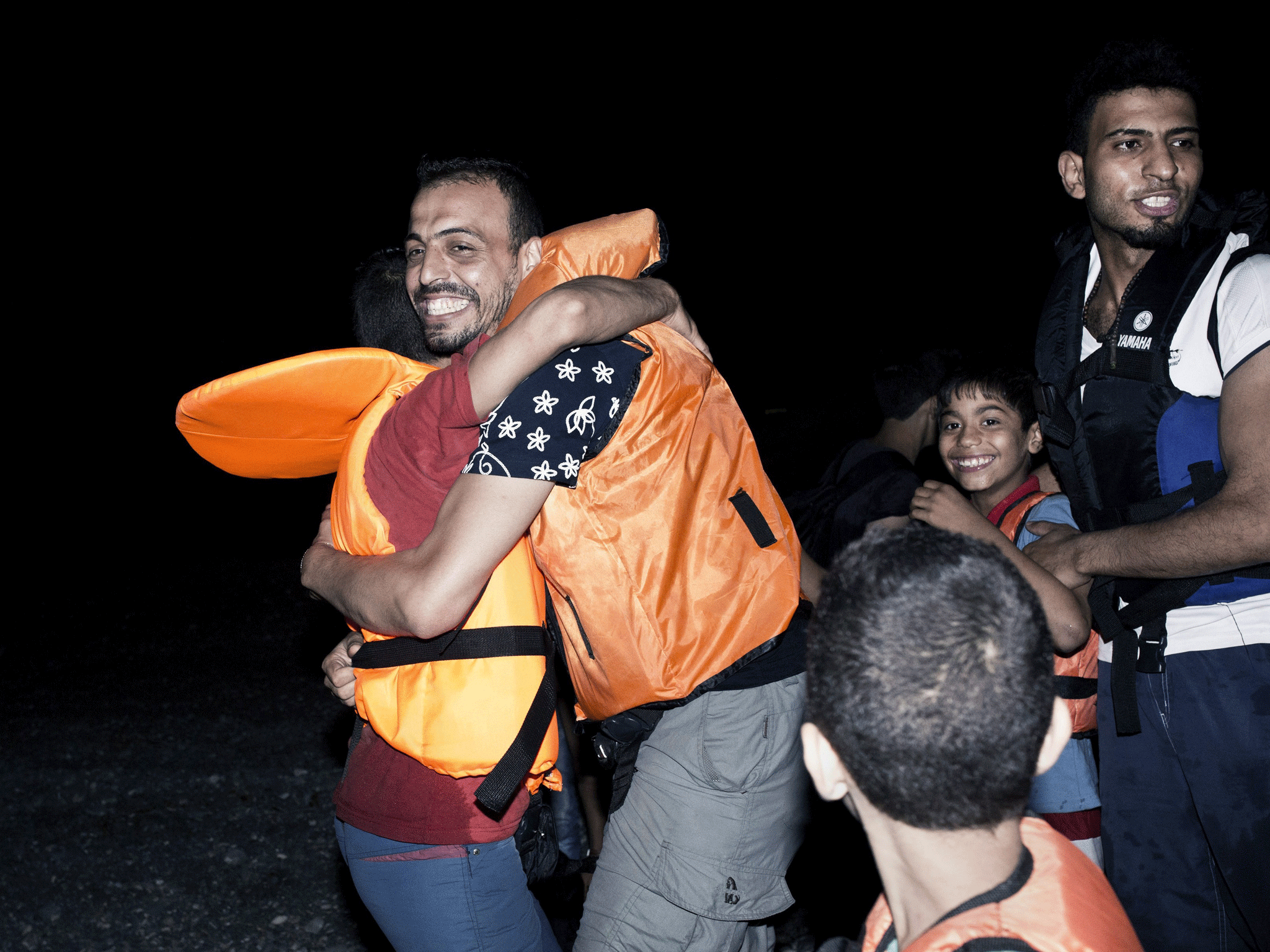
Omar Mohammad, a 25-year-old English literature graduate from Aleppo, told the news agency how the three-hour crossing had been his third attempt to reach Greece in four days.
He said on two previous occasions he had been prevented from leaving by Turkish officials.
He said: "I feel good to be here, but I still miss my family."
Dirar, another English graduate who crossed with Mohammed's group, described the conditions they had left behind in Syria.
He said: "Aleppo is the worst city in the world. There's no electricity, no water, no internet.
"My home was destroyed by a rocket blast.
"I was so happy to be alive that I took a selfie," he said. "From Greece, I will travel through Macedonia, Serbia and Hungary to Germany."
Struggling to cope with the influx, authorities in Kos have faced criticism after fire extinguishers and batons were used against migrants locked in an old football stadium on Tuesday.
"MSF is very worried about how the situation is evolving in KOS", MSF director of operations Brice de le Vingne said.
"What was previously a situation of state inaction is now one of state abuse, with police using increasing heavy-handed force against these vulnerable people."
The medical charity, which is providing assistance to refugees, said more than 7,000 people arrived in Kos last month.
De le Vigne said authorities in Kos are hoping to deter migrants from heading to the island by not offering better living conditions.
"But the truth is that people fleeing war will keep on coming whether or not the authorities are trying to stop them from doing so," he said.
"One is left to wonder what more the Greek authorities need to rise up to the occasion, take their responsibilities and receive these people humanely and with dignity."
Additional reporting by AP